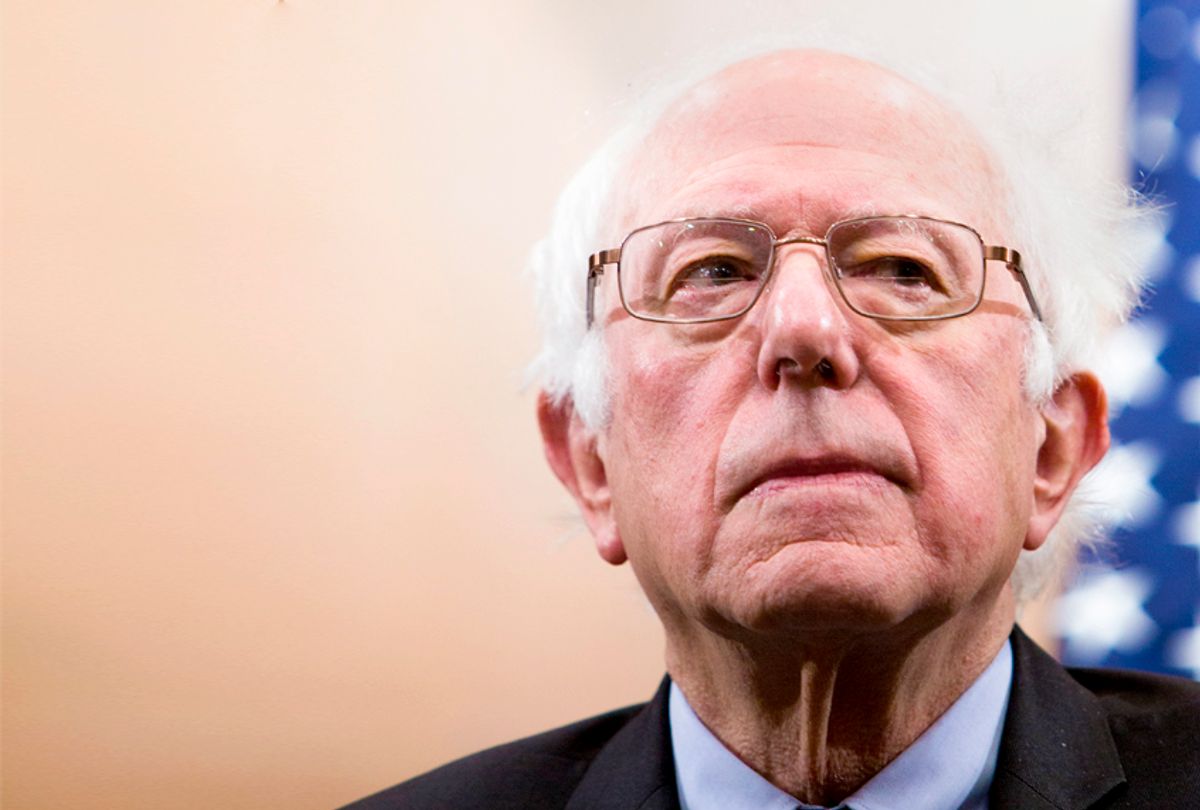Sen. Bernie Sanders, I-Vt., has once again aroused controversy, this time after he made comments about President Barack Obama at an event honoring Dr. Martin Luther King, Jr. that critics claimed disparaged the first African-American president and supporters insist was taken out of context.
On Wednesday, during an event in Jackson, Mississippi honoring King's legacy on the 50th anniversary of his death, Sanders discussed the future of the Democratic Party with members of the audience.
"The business model, if you like, of the Democratic Party for the last 15 years or so has been a failure," Sanders told the audience, according to BuzzFeed. "People sometimes don't see that because there was a charismatic individual named Barack Obama, who won the presidency in 2008 and 2012."
Sanders added, "He was obviously an extraordinary candidate, brilliant guy. But behind that reality, over the last 10 years, Democrats have lost about 1,000 seats in state legislatures all across this country."
Many on Twitter took umbrage with Sanders' remarks, viewing them as at best tone deaf and at worse outright disrespectful toward America's first black president at an event meant to honor one of the African-American community's most iconic civil rights leaders.
But there were some tweeters who defended Sanders, claiming that the audience had responded positively to his remarks or arguing that they were being taken out of context.
Sanders himself also chimed in to comment on the controversy, arguing that he had actually recognized "the historical significance of the Obama presidency" and implying that his remarks had been mischaracterized by the media.
There is also a heated debate over the racial composition of that audience, with Jackson Free Press describing it as "predominantly white" and a Twitter user who attended claiming that it was "about 50/50." As of the 2010 census, roughly four out of five citizens of Jackson, Mississippi were African-American.
At the core of this controversy, though, is the tension between Sanders' campaign and the social justice wing of the Democratic Party, one that has championed causes important to many members of the African-American community. During the 2016 presidential election, there were Black Lives Matter protests at some of Sanders' rallies, many of which seemed to be directed at the perceived racist behavior of his supporters as well as at Sanders himself. During a president debate in March 2016, Sanders also was criticized for seeming to generalize the African-American community when he answered a question about his own racial blind spots by saying, "When you're white, you don't know what it's like to be living in a ghetto, you don't know what it's like to be poor."
Since the election, Sanders has also been criticized for comments that seemed to have minimized the importance of racial justice issues in order to win over Trump voters.
For instance, in the weeks after Trump's upset victory over Hillary Clinton, Sanders encouraged supporters to "go beyond identity politics," according to The Guardian. According to Sanders, "The working class of this country is being decimated — that’s why Donald Trump won. And what we need now are candidates who stand with those working people, who understand that real median family income has gone down."
In April of last year, Sanders again made controversial remarks that seemed to downplay the role of racism in Trump's victory.
"Some people think the people who voted for Trump are racists and sexists and homophobes and deplorable folks. I don’t agree, because I’ve been there," Sanders told an audience in Boston, according to The Guardian.
If nothing else, it is clear that both Sanders and his supporters will need to do a lot of work to build a solid bridge between their cause and that of their social justice critics, regardless of whether you feel the most recent criticisms of Sanders are valid. The Democratic Party depends on high turnout from African-American voters in order to win elections, and a candidate whose views on racial issues is suspect is one who could very well struggle to connect with one of the party's core constituencies. In the 2016 presidential election — when the Clinton campaign hoped that black turnout would be stimulated by Trump's long history of racist comments — black turnout fell to 59 percent, compared to 65 percent in the 2008 presidential election and 66 percent in the 2012 presidential election.
If Sanders wants to not only be the Democratic presidential nominee but America's next Democratic president, he will have to resolve this issue.



Shares